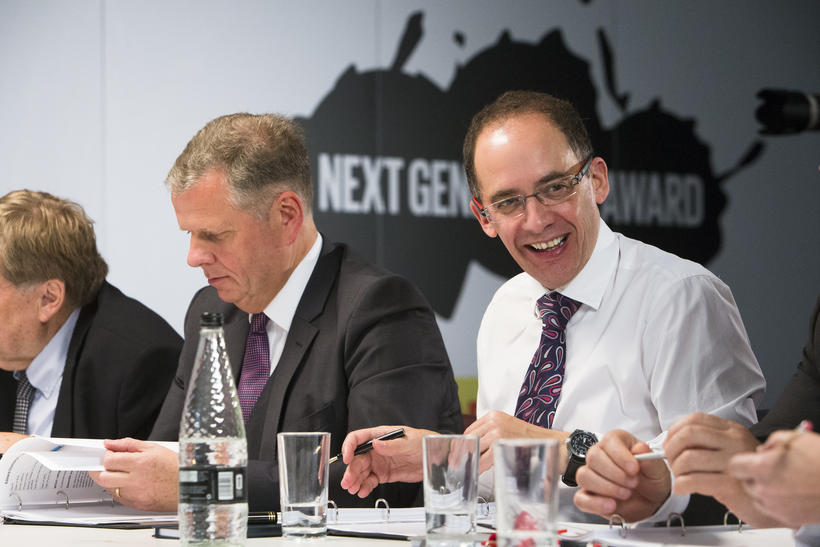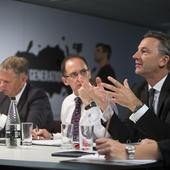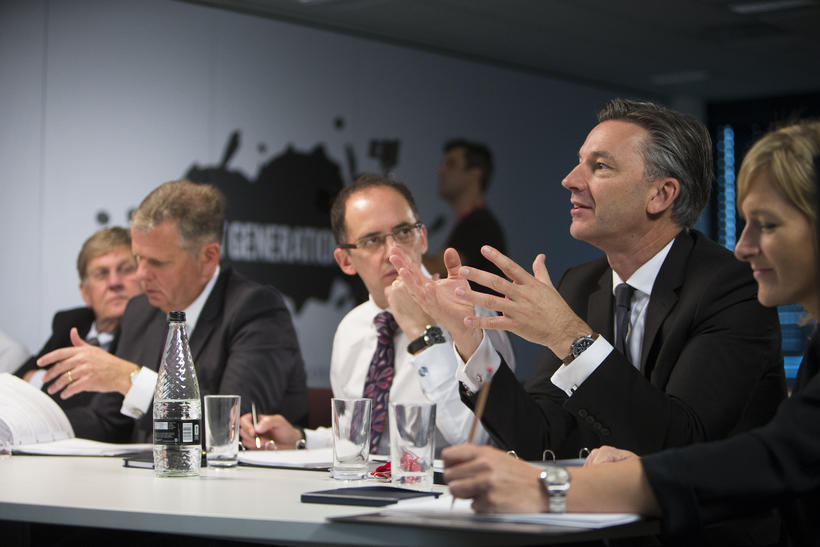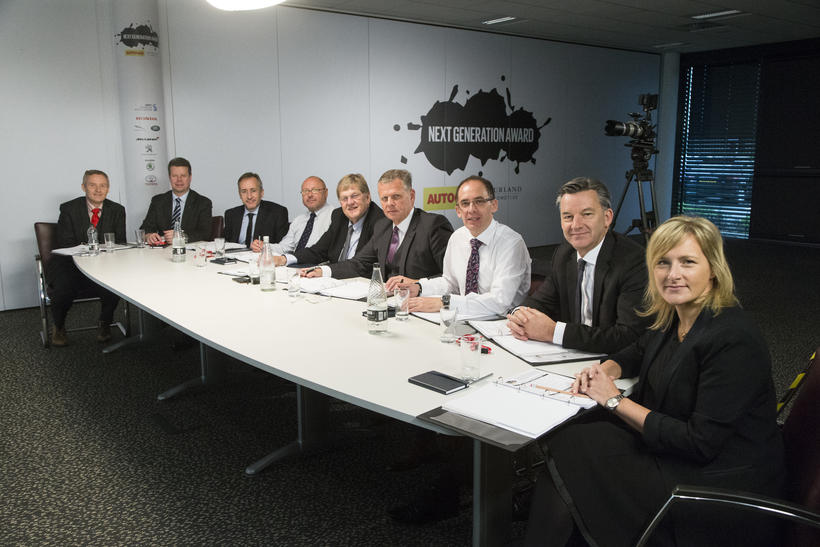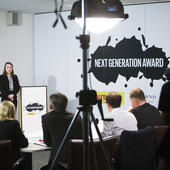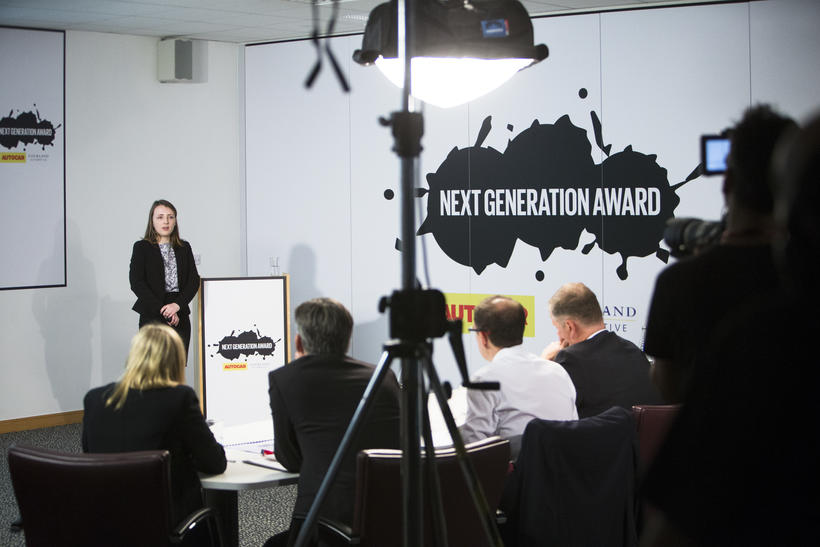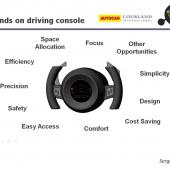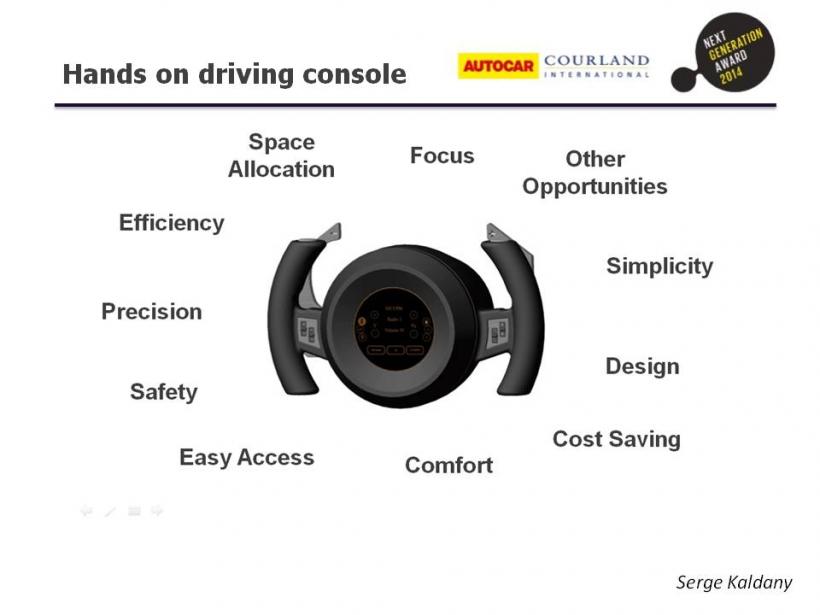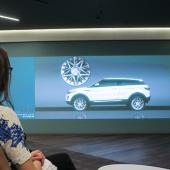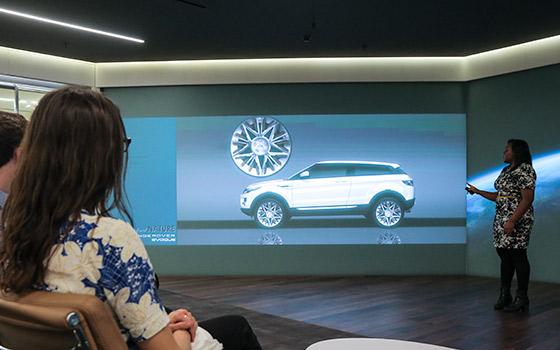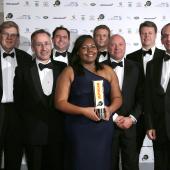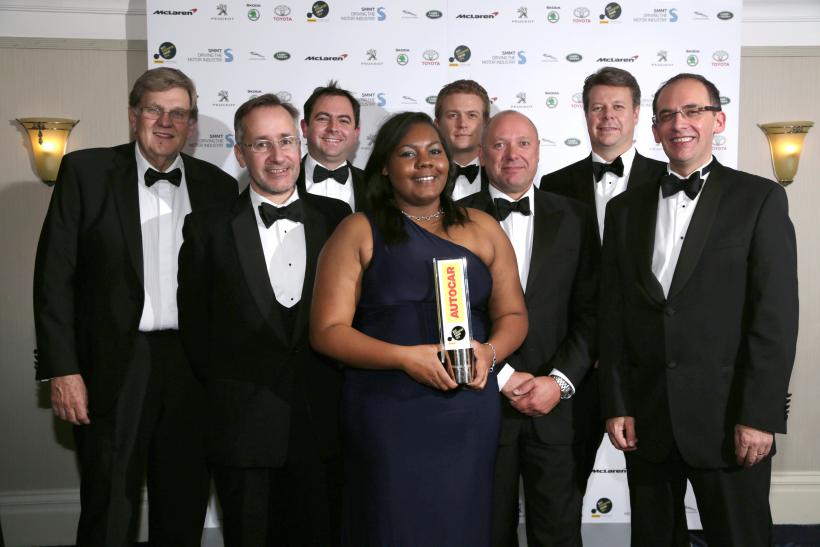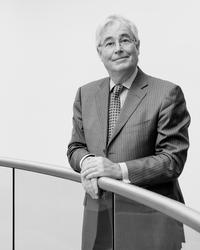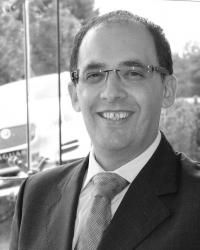News
Where are they now.....

As part of our 10 year celebrations we have been catching up with finalists from the last decade.
Adam Hyett was one of our 2014 finalists, with an idea for a Rear collision warning system. He now works at Aston Martin Lagonda. Here are his thoughts on his Next Generation experience:
What do you feel you benefited from your Next Gen experience?
Having Next Gen finalist on my CV gave it a massive boost, it interested all my interviewers and gives you something different to talk about other than university/work experience which will give you an edge over other applicants. The Next Gen competition also increased my confidence. The idea of presenting to a panel of very senior people within the industry was daunting but it was an enjoyable experience, and now I feel much less nervous about doing any presentations at work
Where are you working now and what do you do there?
I work at Aston Martin Lagonda as a Senior Manufacturing Engineer within the AME department (Advanced Manufacturing Engineering)
What’s the best thing about your job?
Working on some of the most beautiful cars in the world (and getting to drive them!)
What’s your advice to people thinking about entering the award this year?
I would definitely recommend entering. I only knew about the competition the day before the deadline to enter, so didn’t have much time to think about my idea and never imagined I would get as far as I did. If you are unsure about your idea, speak to your friends/family/teachers about it as they may be able to offer a different perspective and add value to it. The competition can open a lot of doors - you have nothing to lose
Gallery
Autocar-Courland Next Generation Award 2017 - Winner Announced
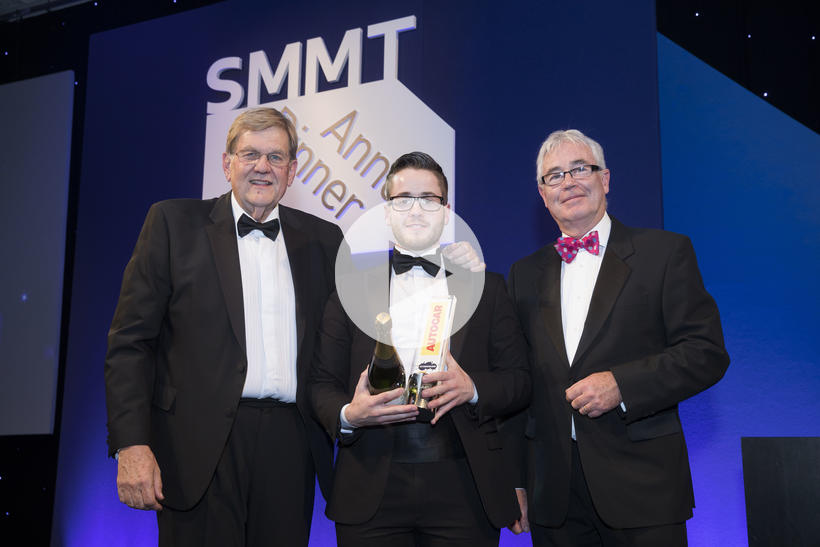
An innovative generator system that could significantly boost the efficiency of an electrified car’s powertrain has topped this year’s Autocar-Courland Next Generation Award 2017.
The proposal, thought up by 25-year-old Teeside University mechanical engineering graduate Tom Lingard, uses a power generator that’s driven by the car’s exhaust gases to input energy into the electric system.
The generator can top up the charge of a hybrid car’s battery or even drive its ancillaries, such as coolant and fuel pumps, reducing the load on the combustion engine and therefore increasing its fuel efficiency.
Lingard also said that his system could improve efficiency in electric vehicles with combustion engines to charge their batteries, such as the BMW i3 range-extender, which uses a 650cc petrol motor. Reducing the work of the twin-cylinder engine would allow it to drink even less fuel.
The Next Generation Award offers each year’s winner a platform on which to build or develop a career within the automotive industry. Lingard, who was announced as winner at tonight’s Society of Motor Manufacturers and Traders dinner, will now start a six-month work experience journey with award sponsors including Jaguar Land Rover, McLaren Automotive, Nissan, Toyota, Honda and Horiba MIRA.
“It is an honour to be announced as the winner of the Autocar-Courland Next Generation Award 2017. It has been a fantastic experience – from the intense judging process to the mentoring programme,” said Lingard, who is from Stockton on Tees.
“It’s extremely exciting to have won the internship rotation and to be able to experience everything over six months right at the beginning rather than over the space of 20 years, it's an incredible opportunity.”
Judges commended Lingard’s proposal for its topical focus, which comes at a time when the automotive industry is investing heavily to improve efficiency and performance in hybrid power units.
Two other finalists for the award were also recognised for their ideas. Jack Levy, a mechanical engineering student at Cardiff University, submitted a plan to introduce a network of contactless charging roads to UK motorways, to reduce current range anxiety with electric vehicles.
Stephen Crossley, an automotive engineering student at Oxford Brookes University, set out to improve handling, traction, cornering ability and tyre wear rate by altering the camber based on a driver’s requirements.
“The Next Generation Award enters its ninth year of success, during which time we have seen a host of talent flourish under its banner and go on to notable success in the global automotive industry,” said Martin Bohling, global managing partner at Courland Automotive. “All of the judges on our panel look forward to this time of year and the opportunity to celebrate once again the undoubted talent the UK automotive industry has to offer.”
Autocar editor-in-chief Steve Cropley added: “The initiative has delivered, once again, a phenomenal level of talent with some highly innovative ideas that could seriously improve the automotive industry. Tom’s idea evaluated industry demands combined with a changing vehicle landscape.
“With the volume of high-quality entries, it has been a challenging task narrowing it down to the finalists and an overall winner. It has been an honour to work with each and every finalist and I would personally like to congratulate them all. There are definitely exciting times ahead for the industry.”
Applications for the 2018 Autocar-Courland Next Generation Award will open early next year.
Meet the 2017 finalists

We will be announcing the 2017 Next Generation winner on Tuesday 28th November, but for now here is an introduction to our three finalists Jack, Stephen and Tom (above left to right) and their ideas.
Jack Levy - Contactless charging roads
Combining his love of cars, fascination for electrification and an entrepreneurial spirit, Jack submitted a plan to introduce a network of contactless charging roads to UK motorways, anticipating installation problems with the aim of markedly reducing range anxiety. He pointed out that the network would enable not only conventional electric vehicles but also autonomous cars. It would provide easy incident tracking and dramatically reduce journey times. Jack is studying mechanical engineering at Cardiff University.
Stephen Crossley - Active Camber Change
Stephen, a lover of sports cars, submitted an idea to improve handling, traction, cornering ability and tyre wear rate by altering the camber based on a driver’s requirement, varied by a ‘mode’ control in the car or autonomously according to driving conditions, using information picked up bysensors already fitted to the car for other purposes. The idea is proposed as an add-on for top-spec models, or as standard equipment for high-performance cars. Stephen is an automotive engineering student at Oxford Brookes University.
Tom Lingard - Turbine driven generator
The idea Tom put forward is to use a turbine, driven by exhaust gas, to generate power for use either to top up the charge of a hybrid car’s battery, or to drive ancillaries like coolant and fuel pumps and even a car’s valve-train. He argues that when applied to a range extender like the BMW i3, whose charge engine operates in a restricted speed range, the system could improve efficiency by as much as 25%. Tom is a mechanical engineering graduate from Teesside University, and is currently working as a validation engineer.




